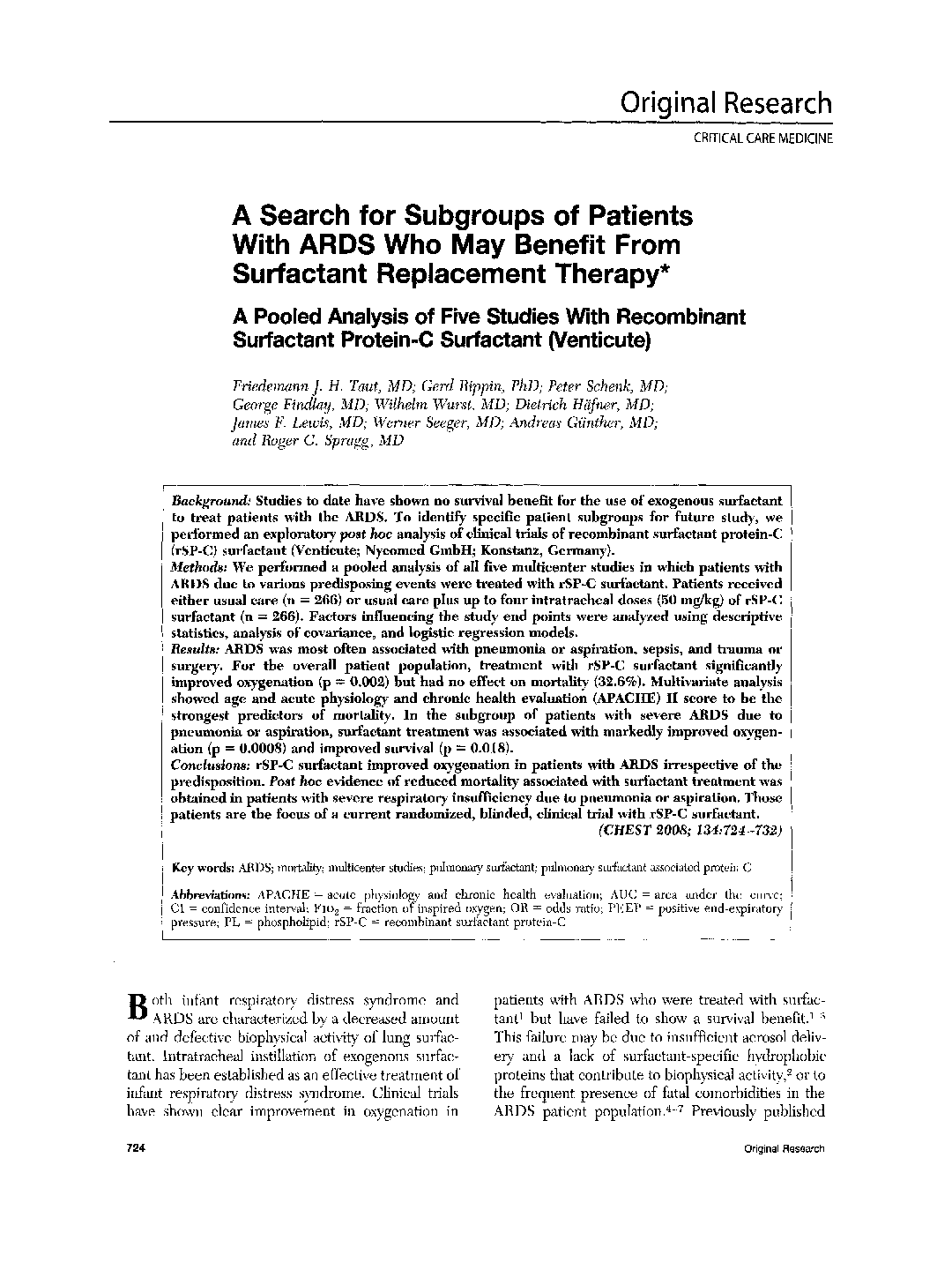| Article ID | Journal | Published Year | Pages | File Type |
|---|---|---|---|---|
| 2902968 | Chest | 2008 | 9 Pages |
BackgroundStudies to date have shown no survival benefit for the use of exogenous surfactant to treat patients with the ARDS. To identify specific patient subgroups for future study, we performed an exploratory post hoc analysis of clinical trials of recombinant surfactant protein-C (rSP-C) surfactant (Venticute; Nycomed GmbH; Konstanz, Germany).MethodsWe performed a pooled analysis of all five multicenter studies in which patients with ARDS due to various predisposing events were treated with rSP-C surfactant. Patients received either usual care (n = 266) or usual care plus up to four intratracheal doses (50 mg/kg) of rSP-C surfactant (n = 266). Factors influencing the study end points were analyzed using descriptive statistics, analysis of covariance, and logistic regression models.ResultsARDS was most often associated with pneumonia or aspiration, sepsis, and trauma or surgery. For the overall patient population, treatment with rSP-C surfactant significantly improved oxygenation (p = 0.002) but had no effect on mortality (32.6%). Multivariate analysis showed age and acute physiology and chronic health evaluation (APACHE) II score to be the strongest predictors of mortality. In the subgroup of patients with severe ARDS due to pneumonia or aspiration, surfactant treatment was associated with markedly improved oxygenation (p = 0.0008) and improved survival (p = 0.018).ConclusionsrSP-C surfactant improved oxygenation in patients with ARDS irrespective of the predisposition. Post hoc evidence of reduced mortality associated with surfactant treatment was obtained in patients with severe respiratory insufficiency due to pneumonia or aspiration. Those patients are the focus of a current randomized, blinded, clinical trial with rSP-C surfactant.
